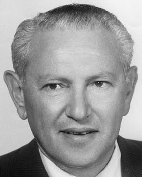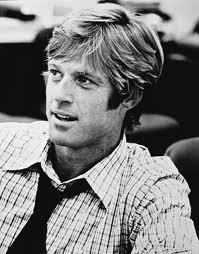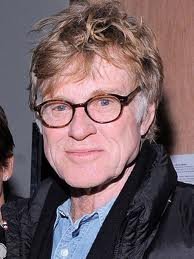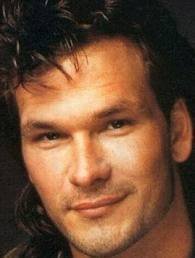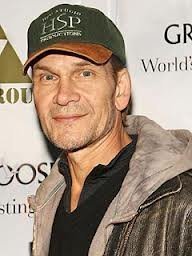Sir Charles Spencer Chaplin KBE (16 April 1889 – 25 December 1977) was an English comic actor, filmmaker, and composer who rose to fame in the era of silent film. He became a worldwide icon through his screen persona, the Tramp, and is considered one of the film industry's most important figures. His career spanned more than 75 years, from childhood in the Victorian era until a year before his death in 1977, and encompassed both adulation and controversy.
Chaplin's childhood in London was one of poverty and hardship. His father was absent and his mother struggled financially – he was sent to a workhouse twice before the age of nine. When he was 14, his mother was committed to a mental asylum. Chaplin began performing at an early age, touring music halls and later working as a stage actor and comedian. At 19, he was signed to the Fred Karno company, which took him to the United States. He was scouted for the film industry and began appearing in 1914 for Keystone Studios. He soon developed the Tramp persona and attracted a large fan base. He directed his own films and continued to hone his craft as he moved to the Essanay, Mutual, and First National corporations. By 1918, he was one of the world's best-known figures.
In 1919, Chaplin co-founded distribution company United Artists, which gave him complete control over his films. His first feature-length film was The Kid (1921), followed by A Woman of Paris (1923), The Gold Rush (1925), and The Circus (1928). He initially refused to move to sound films in the 1930s, instead producing City Lights (1931) and Modern Times (1936) without dialogue. His first sound film was The Great Dictator (1940), which satirised Adolf Hitler. The 1940s were marked with controversy for Chaplin, and his popularity declined rapidly. He was accused of communist sympathies, and some members of the press and public were scandalised by his involvement in a paternity suit and marriages to much younger women. An FBI investigation was opened, and Chaplin was forced to leave the U.S. and settle in Switzerland. He abandoned the Tramp in his later films, which include Monsieur Verdoux (1947), Limelight (1952), A King in New York (1957), and A Countess from Hong Kong (1967).
Chaplin wrote, directed, produced, edited, starred in, and composed the music for most of his films. He was a perfectionist, and his financial independence enabled him to spend years on the development and production of a picture. His films are characterized by slapstick combined with pathos, typified in the Tramp's struggles against adversity. Many contain social and political themes, as well as autobiographical elements. He received an Honorary Academy Award for "the incalculable effect he has had in making motion pictures the art form of this century" in 1972, as part of a renewed appreciation for his work. He continues to be held in high regard, with The Gold Rush, City Lights, Modern Times, and The Great Dictator often ranked on lists of the greatest films.
In the last two decades of his career, Chaplin concentrated on re-editing and scoring his old films for re-release, along with securing their ownership and distribution rights. In an interview he gave in 1959, the year of his 70th birthday, Chaplin stated that there was still "room for the Little Man in the atomic age". The first of these re-releases was The Chaplin Revue (1959), which included new versions of A Dog's Life, Shoulder Arms, and The Pilgrim.
In America, the political atmosphere began to change and attention was once again directed to Chaplin's films instead of his views. In July 1962, the New York Times published an editorial stating, "We do not believe the Republic would be in danger if yesterday's unforgotten little tramp were allowed to amble down the gangplank of a steamer or plane in an American port". The same month, Chaplin was invested with the honorary degree of Doctor of Letters by the universities of Oxford and Durham. In November 1963, the Plaza Theater in New York started a year-long series of Chaplin's films, including Monsieur Verdoux and Limelight, which gained excellent reviews from American critics. September 1964 saw the release of Chaplin's memoir, My Autobiography, which he had been working on since 1957. The 500-page book became a worldwide best-seller. It focused on his early years and personal life, and was criticised for lacking information on his film career.
Shortly after the publication of his memoirs, Chaplin began work on A Countess from Hong Kong (1967), a romantic comedy based on a script he had written for Paulette Goddard in the 1930s. Set on an ocean liner, it starred Marlon Brando as an American ambassador and Sophia Loren as a stowaway found in his cabin. The film differed from Chaplin's earlier productions in several aspects. It was his first to use Technicolor and the widescreen format, while he concentrated on directing and appeared on-screen only in a cameo role as a seasick steward. He also signed a deal with Universal Pictures and appointed his assistant, Jerome Epstein, as the producer. Chaplin was paid $600,000 director's fee as well as a percentage of the gross receipts. A Countess from Hong Kong premiered in January 1967, to unfavourable reviews, and was a box-office failure. Chaplin was deeply hurt by the negative reaction to the film, which turned out to be his last.
Chaplin had a series of minor strokes in the late 1960s, which marked the beginning of a slow decline in his health. Despite the setbacks, he was soon writing a new film script, The Freak, a story of a winged girl found in South America, which he intended as a starring vehicle for his daughter, Victoria. His fragile health prevented the project from being realised. In the early 1970s, Chaplin concentrated on re-releasing his old films, including The Kid and The Circus. In 1971, he was made a Commander of the National Order of the Legion of Honour at the Cannes Film Festival.[344] The following year, he was honoured with a special award by the Venice Film Festival.
By October 1977, Chaplin's health had declined to the point that he needed constant care. In the early morning of Christmas Day 1977, Chaplin died at home after having a stroke in his sleep. He was 88 years old. The funeral, on 27 December, was a small and private Anglican ceremony, according to his wishes. Chaplin was interred in the Corsier-sur-Vevey cemetery. Among the film industry's tributes, director René Clair wrote, "He was a monument of the cinema, of all countries and all times ... the most beautiful gift the cinema made to us." Actor Bob Hope declared, "We were lucky to have lived in his time." Chaplin left more than $100 million to his widow.
On 1 March 1978, Chaplin's coffin was dug up and stolen from its grave by Roman Wardas and Gantcho Ganev. The body was held for ransom in an attempt to extort money from his widow, Oona Chaplin. The pair were caught in a large police operation in May, and Chaplin's coffin was found buried in a field in the nearby village of Noville. It was re-interred in the Corsier cemetery in a reinforced concrete vault.
If you want to read a whole lot more, go here: https://en.wikipedia.org/wiki/Charlie_Chaplin
- 1 (3-ounce) package cream cheese, softened
- 1/4 cup (½ stick) butter, softened
- 1/2 teaspoon salt
- 1/4 teaspoon black pepper
- 2 (10-ounces) packages frozen chopped spinach, thawed and well drained
- 1/4 cup grated Parmesan cheese
- 1/4 cup chopped pecans
- Preheat oven to 350 degrees F. Coat a 1 1/2-quart casserole dish with cooking spray, set aside.
- In a large bowl, combine the cream cheese, butter, salt, and pepper; mix well. Add spinach; mix well.
- Spoon mixture into casserole dish. Sprinkle with cheese, then with pecans.
- Bake 30 to 35 minutes, or until heated through and top is golden.
This day marks the anniversary of the first Montgomery Wards mail order catalog. On this day in 1872, Aaron Montgomery Ward of Chicago produced a catalog designed for direct order via mail. He aimed to remove the middleman from the business of buying and selling. As a result, he also drastically lowered prices.
The very first catalog consisted of an 8 by 12-inch single sheet of paper. On it, Ward included the merchandise for sale, price list, and ordering instructions. Before long, the Montgomery Wards single-page list of products grew into a 540 page illustrated book selling over 20,000 items.
It didn’t take long for enterprising merchants to copy Montgomery Wards’ idea. One notable merchant, Richard Warren Sears, mailed his catalog in 1896. As others entered the field, catalog sales grew. By 1971, catalog sales of major United States firms exceeded more than $250 million in postal revenue.
It’s interesting to note, according to the National Mail Order Association, Aaron Montgomery Ward wasn’t the first to conceive of the mail order catalog. In the United States. Benjamin Franklin may have formulated the first basic mail order concept. He produced a catalog to sell scientific and academic books. Franklin also receives credit for offering the first mail-order guarantee: “Those persons who live remote, by sending their orders and money to B. Franklin may depend on the same justice as if present.”
Today, mail order catalogs have been replaced with internet websites. Additionally, the term “mail-order” has been replaced with the term “online shopping.”
HOW TO OBSERVE NATIONAL MAIL ORDER CATALOG DAY
While our catalogs are digital these days, which ones are your favorites? Nearly every retail business has an online presence and with that, their catalog of products grows, varies, and changes. It’s an excellent day to support your small online business by shopping with them, sharing their products, or giving them a review. Is there a product you wish they’d carry? Let them know! Many retailers seek customer feedback to improve their business. What are some of you’re favorite purchases from a mail-order catalog (paper or digital)?
Mail Order FAQ
Q. Do mail order catalogs still exist?
A. Yes, they do, and they are increasing in popularity. Many companies are issuing small catalogs to grab customers’ attention. Most companies that have catalogs also have websites to sell their products.
Q. What do mail order catalogs sell?
A. Just about anything from fashion and accessories to medical equipment. Some catalogs specialize while others offer a variety of merchandise.
Q. Can I still order directly from a website if I receive a catalog?
A. Yes, but don’t hesitate to look through the entire catalog. Some companies may include special QR codes and discount codes.








